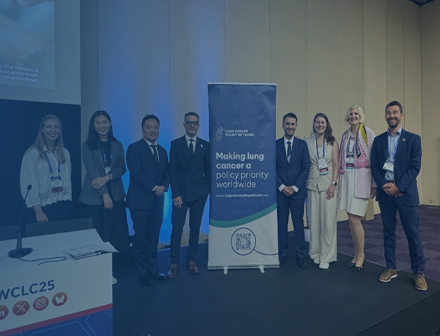We speak to Jan van Meerbeeck, Honorary Professor of Pulmonology, Antwerp University and Ghent University, and Senior Consultant Thoracic Oncologist, Antwerp University Hospital, Belgium
What led you to work in the field of lung cancer?
When I started as an internal medicine specialist and pulmonologist 40 years ago, there was an unmet need for care for people with lung cancer. Due to this gap in care, I carried out my PhD on the presentation of lung cancer in Belgium. I specialised in this field to help improve lung cancer outcomes and move research forward.
What does an average workday look like for you?
I have retired from working clinically, so now spend my time doing research and consultancy. My current research focus is on the implementation of lung cancer screening in Belgium.
I am also heavily involved in wider lung cancer policy, sitting on many committees and assemblies. I am currently the chair of the European Respiratory Society’s Thoracic Oncology Assembly and a member of their mesothelioma guideline committee.
What is working well in Belgium, and what could be improved?
In Belgium, healthcare is split between different authorities which makes decision-making complicated and slows down the process of implementing screening. There are complex issues with healthcare financing that also hinder the implementation of a lung cancer screening programme.
What motivated you to join the Lung Cancer Policy Network?
A desire to network and collaborate with other lung cancer professionals to help shape policy and improve the implementation of lung cancer screening programmes.
What would you like to see from the Network as it develops?
More of an emphasis on synthesising and disseminating practical tools or documents to engage and persuade health authorities and politicians to spend on lung cancer prevention and screening.
What changes would you like to see in lung cancer care on a global level?
More academic research in the areas of lung cancer screening implementation, biomarkers for early diagnosis and mesothelioma treatment.
There should also be a move to concentrate care in expert centres.
What recent research do you think is the most interesting or exciting?
I see the most promise in immunotherapy, targeted agents and low-dose computed tomography (LDCT) screening. Targeted agents have the potential to turn metastatic lung cancer into a chronic disease that can be managed by daily medication with minimal side effects.
Outside of work, what do you spend your time doing?
Reading historical novels and travelling.
Recent news
Blog

Insights from WCLC 2025
At the World Conference on Lung Cancer in Barcelona, the Network hosted a very well-attended panel discussion focusing on the latest developments in lung cancer policy.
Case study

The screening programme for lung cancer in the Canadian province of British Columbia
We explore how a regional screening programme has been established throughout British Columbia.
News

Event to address lung cancer screening implementation in Central and Eastern Europe
On 16 September, the Network and the Croatian National Lung Cancer Screening Program will be hosting an in-person event.
